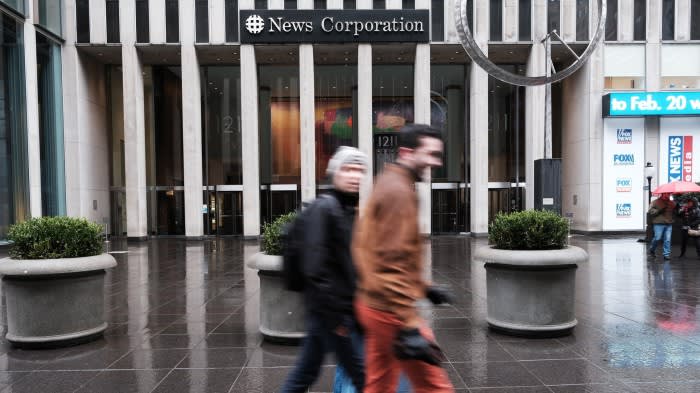Stay informed with free updates
Simply sign up to the Media myFT Digest — delivered directly to your inbox.
Rupert Murdoch’s Dow Jones and the New York Post have accused artificial intelligence start-up Perplexity of a “brazen scheme” to rip off their journalism for its AI-driven search engine in a lawsuit filed in New York on Monday.
The publishers, both subsidiaries of News Corp, alleged the AI start-up, which is seeking to raise up to $1bn in a funding round that will value it at $8bn, was “engaging in a massive amount of illegal copying” of their work.
The lawsuit said Perplexity is “diverting customers and critical revenues” away from the news publishers, whose titles include the Wall Street Journal, “freeriding on the valuable content the publishers produce”.
Perplexity’s search engine allows users to get instant answers to questions, with sources and citations, using large language models (LLMs) from platforms such as OpenAI and Anthropic.
However, its “answer engine” copies on a “massive scale . . . copyrighted news content, analysis, and opinion as inputs into its internal database”, the lawsuit said. These then generate responses to users’ queries “that are intended to and do act as a substitute for news and other information websites”, according to the lawsuit, whose claims include copyright infringement.
The lawsuit is the latest clash between publishers and AI companies, which are keen to use content to train their models and provide up-to-date responses to users.
Some, such as OpenAI, have signed commercial partnerships and licensing agreements with publishers, including News Corp and the Financial Times, which are among the newspapers that allow ChatGPT users to see select attributed summaries, quotes and links.
However, publishers are also increasingly seeking legal action to block AI-driven search engines from illegally scraping copyrighted work. The New York Times has filed a lawsuit against OpenAI, and last week sent Perplexity a “cease and desist” notice telling the company to stop using its journalism, including creating summaries and other types of content.
Monday’s lawsuit also alleged Perplexity is harming the brands by falsely attributing certain content to them, and sometimes generating “answers” with false information. In July, the publishers sent a letter to the start-up, putting it on notice of the legal issues and offering to discuss a potential licensing deal, the lawsuit said, but Perplexity “did not bother to respond”.
“Perplexity perpetrates an abuse of intellectual property that harms journalists, writers, publishers, and News Corp,” News Corp chief executive Robert Thomson said. “The perplexing Perplexity has wilfully copied copious amounts of copyrighted material without compensation, and shamelessly presents repurposed material as a direct substitute for the original source.”
Forbes and Wired have accused Perplexity of plagiarism, with the latter branding the start-up “a Bullshit Machine” after an investigation reportedly showed it was “surreptitiously scraping” websites for data.
Perplexity has previously told publishers it would stop using “crawling” technology, and has since launched a revenue-sharing initiative. The company is also planning to introduce advertising on to its platform, in a move that courts similar brands to news outlets in a hope to drive revenue.
Perplexity did not immediately return a request for comment.



